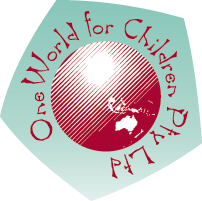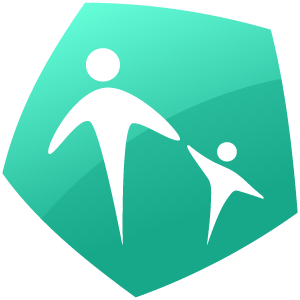Code of Conduct
 Policy
Policy
One World Children’s Centre staff, students and volunteers will follow the code of conduct at all times.
Relevant Legislation
Education and Care Services National Law Act 2010: Section 166, 167, 174
Education and Care Services National Regulations 2011: Regulations 155, 156, 157, 175
National Quality Standard, Quality Area 4: Staffing Arrangements
Charter of Human Rights and Responsibilities Act 2006 (Vic)
Children, Youth and Families Act 2005 (Vic), as amended 2011
Child Wellbeing and Safety Act 2005 (Vic), as amended 2011
Disability Discrimination Act 1992 (Cth)
Equal Opportunity Act 2010 (Vic)
Fair Work Act 2009 (Cth)
Fair Work Regulations 2009 (Cth)
Occupational Health and Safety Act 2004
Occupational Health and Safety Regulations 2007
Racial Discrimination Act 1975
Racial and Religious Tolerance Act 2001 (Vic)
Sex Discrimination Act 1984 (Cth)
Background
A Code of Conduct establishes a standard of behaviour to be followed by the Approved Provider, Nominated Supervisor, Certified Supervisor, educators, staff, students on placement and volunteers at the service. The Code of Conduct defines how individuals should behave towards each other, towards the children in their care, and towards other organisations and individuals in the community.
Definitions
Assault: An incident where a person causes injury, pain, discomfort or damage to another person. It also includes insult or deprivation of liberty. Assault can be physical or verbal.
Duty of care: A common law concept that refers to the responsibilities of organisations to provide people with an adequate level of protection against harm and all reasonable foreseeable risk of injury.
Ethical conduct: Always act in the best interests of children, their parents/guardians and families, and users of the service.
Harassment: When someone is demeaning, derogatory or intimidating towards another person. Harassment includes:
- racial taunts
- taunts about sexual orientation or gender identity
- sexual harassment: unwelcome physical, verbal or written behaviour of a sexual nature
- repeated insulting remarks.
Respect: Value the rights, religious beliefs and practices of individuals. Refrain from actions and behaviour that constitute harassment or discrimination.
Support: Work in a co-operative and positive manner.
Serious incident: An incident resulting in the death of a child, or an injury, trauma or illness for which the attention of a registered medical practitioner, emergency services or hospital is sought or should have been sought. This also includes an incident in which a child appears to be missing, cannot be accounted for, is removed from the service in contravention of the Regulations or is mistakenly locked in/out of the service premises (Regulation 12). A serious incident should be documented in an Incident, Injury, Trauma and Illness Record (sample form available on the ACECQA website) as soon as possible and within 24 hours of the incident. The Regulatory Authority (DEECD) must be notified within 24 hours of a serious incident occurring at the service (Regulation 176(2)(a)). Records are required to be retained for the periods specified in Regulation 183.
Professional Standards for Staff, students and Volunteers
Relationships with children
In their relationships with children, the Approved Provider, Nominated Supervisor, Certified Supervisor, educators all staff, students and volunteers will demonstrate their commitment to high-quality education and care for children by:
- being a positive role model at all times
- encouraging children to express themselves and their opinions
- allowing children to undertake experiences that develop self-reliance and self-esteem
- maintaining a safe environment for children
- respecting the rights of all children
- contributing to a service environment that is free from discrimination, bullying and harassment
- speaking to children in an encouraging and positive manner
- listening actively to children and offering empathy and support
- giving each child positive guidance and encouraging appropriate behaviour
- regarding all children equally, and with respect and dignity
- having regard to the cultural values, age, physical and intellectual development, and abilities of each child at the service
- providing opportunities for children to interact and develop respectful and positive relationships with each other, and with other staff members and volunteers at the service
- informing children if physical contact is required for any purpose, and asking them if they are comfortable with this interaction
- ensuring all interactions with children are undertaken in full view of other adults
- encouraging and assisting children to undertake activities of a personal nature for themselves e.g. toileting and changing clothes
- respecting the confidential nature of information gained about each child while participating in the program.
Relationships with parents/guardians and families
In their relationships with parents/guardians and families, the Approved Provider, Nominated Supervisor, Certified Supervisor, educators’ staff, students and volunteers will demonstrate their commitment to collaboration by:
- being respectful of, and courteous towards, parents/guardians and families at all times
- considering the perspective of parents/guardians and families when making decisions that impact on the education and care of their child
- communicating with parents/guardians and families in a timely and sensitive manner
- responding to concerns expressed by parents/guardians and families in a timely and appropriate manner
- respecting the cultural context of each child and their family
- working collaboratively with parents/guardians and families
- respecting the privacy of information provided by parents/guardians and families, and keeping this information confidential, as required under the Privacy and Confidentiality Policy.
Relationships with colleagues at the service
In their relationships with colleagues, the Approved Provider, Nominated Supervisor, Certified Supervisor, educators’ staff, students and volunteers will demonstrate collegiality by:
- developing relationships based on mutual respect, equity and fairness
- working in partnership in a courteous, respectful and encouraging manner
- valuing the input of their peers
- sharing expertise and knowledge in appropriate forums, and in a considered manner
- respecting the rights of others as individuals
- giving encouraging and constructive feedback, and respecting the value of different professional approaches.
Professional responsibilities
The Approved Provider, Nominated Supervisor, Certified Supervisor, educators and all staff will demonstrate commitment to their professional responsibilities by:
- undertaking their duties in a competent, timely and responsible way
- ensuring their knowledge and expertise is up to date and relevant to their role
- understanding and complying with legal obligations in relation to:
- discrimination, harassment and vilification
- negligence
- mandatory reporting
- privacy and confidentiality
- occupational health and safety
- raising any complaints or grievances
Sources
Early Childhood Australia, Code of Ethics: www.earlychildhoodaustralia.org.au
KPV Early Childhood Management Manual
The Universal Declaration of Human Rights: www.un.org/en/documents/udhr/
Victoria Legal Aid: www.legalaid.vic.gov.au
United Nations, Convention on The Rights of the Child: www2.ohchr.org/english/law/crc.htm





 One World for Children Acknowledgement of Country: Here is the land; Here is the sky; Here are my people and here am I. We give thanks to future, present and past; Ancestors and Elders and the connection that lasts. We acknowledge the Wathaurong people on whose land we learn and play; We promise to look after it every day. ©
One World for Children Acknowledgement of Country: Here is the land; Here is the sky; Here are my people and here am I. We give thanks to future, present and past; Ancestors and Elders and the connection that lasts. We acknowledge the Wathaurong people on whose land we learn and play; We promise to look after it every day. ©